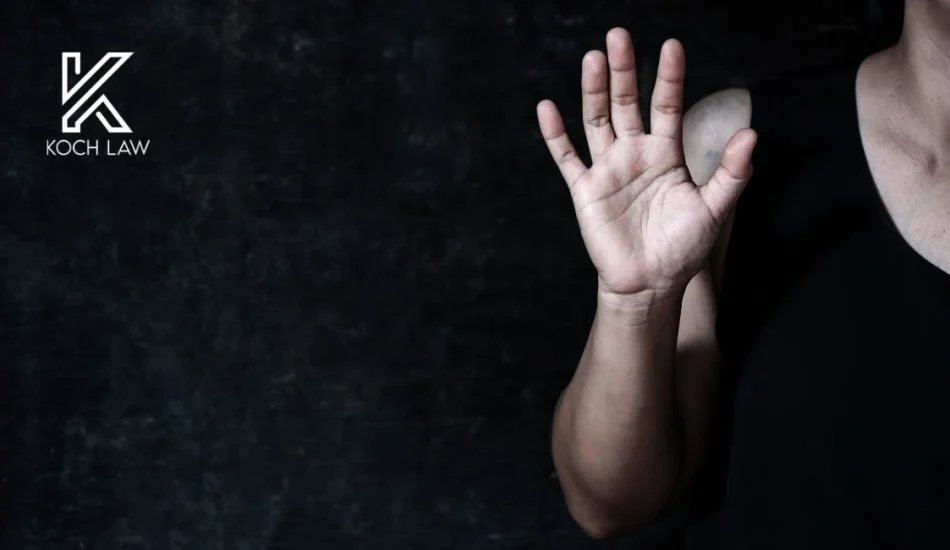Understanding the New York assault laws provides clear insights. However, they also reveal complicated legal elements for those charged with assault or researching the legal definitions and penalties. Legal standards keep evolving, yet uncertainty remains for those who face legal charges or fear loved ones might be charged. Understanding New York’s assault laws today can determine whether you face incarceration or avoid a criminal record.
Koch Law, PLLC is
located in the heart of Midtown
in New York City
What Is Considered Assault in New York?
New York recognizes multiple assault offenses that differ in severity, depending on the intent, injury caused, and specific circumstances of each case. The fundamental nature of assault centers on the infliction of physical harm upon another person. The details of how an assault happens, along with the motivations behind it and the events that unfold during the assault, determine whether the charge will be a misdemeanor or a serious felony.
Third-degree assault involves minor injuries, and it commonly occurs due to reckless behavior or impulsive actions. Despite being considered a misdemeanor, this offense still carries potential consequences, such as jail time, probation, and a criminal record.
Second-degree assault is a bit more serious. A felony charge applies when the assault involves deadly weapons or causes serious injuries. It will also be charged when protected persons, like police officers and school employees, become victims.
The highest level of assault is first-degree assault. This charge involves cases of severe physical harm, disfigurement, and actions that demonstrate total disregard for human life.
New York Assault Trends
In recent years, crime has generally decreased in New York. For example, in New York City, the overall index crime declined by nearly three percent in 2024, which resulted in 3,662 fewer incidents, along with fewer victims of violent and disorderly conduct throughout the five boroughs.
December’s overall index crime dropped by 15.5% compared to December 2023, which marked the most significant monthly reduction since February 2021. However, in 2024, there were 29,417 felony assaults, marking a 5% increase from the previous year.
Recent New York Assault Law Changes
New York assault laws have seen significant changes in recent years. Some of these include the following:
- Domestic abuse offenses. The state has implemented new domestic abuse statutes in the first and second degrees to handle assault cases between spouses, former spouses, and domestic partners.
- Assault on judges. Current law categorizes aggravated assault on a judge as a Class B felony, and it no longer requires proof of intent to cause serious injury.
- Weapon possession enhancements. The legal system now imposes stricter penalties for firearm-related crimes by upgrading particular offenses to higher felony classifications.
The legal amendments demonstrate governmental efforts to defend both vulnerable populations and public officials against assault-related crimes.
Intent in New York Assault Cases
Most assault charges in New York require proof of “intent” by prosecutors. Intent represents the accused’s deliberate action to cause harm or their awareness that their behavior could lead to injury. To obtain a conviction for first- or second-degree assault, prosecutors need to establish proof of intent.
While some harmful acts arise from intentional behavior, others occur due to reckless actions or accidental circumstances. The distinction between intentional and unintentional actions is essential because proving a lack of intent may result in lesser charges or the case’s dismissal. A skilled defense lawyer can meticulously analyze the presented facts, dispute the prosecution’s allegations, and assess whether genuine intent was involved.
What Happens If You’re Charged?
An arrest for assault initiates a sequence of legal events. Officers will place you in custody, which is immediately followed by processing procedures. Then, you appear before a judge during arraignment. At this point, formal charges are presented, and bail decisions to either set or deny are made.
You should expect your arraignment to occur at your local courthouse, which could be Manhattan Criminal Court for city dwellers or Westchester County Court in White Plains for those living further north.
After the arraignment comes discovery and pre-trial motions. Prosecutors must provide you with copies of all evidence they intend to present during the trial. Your assault lawyer has the options to contest the evidence presented, negotiate a plea agreement, or move forward with trial preparations.
Although trials happen infrequently, they become more likely when a case features major injuries or gains media coverage. If convicted, sentencing varies widely. The length of jail time, which can span from several months to twenty-five years, depends on the specific charges, your prior criminal history, and any additional aggravating circumstances.
FAQs
What Is Considered Assault in New York State?
Under New York law, a person commits assault if they intentionally or recklessly inflict physical injury on someone else. The level of legal charges for assault can vary between misdemeanor and felony, based on factors like the degree of injury inflicted, weapon involvement, and the victim’s identity. The legal classification of offenses depends on the perpetrator’s intent, nature of the injury, and surrounding circumstances.
What Is Simple Assault in NY?
In New York, the term “simple assault” usually means third-degree assault, which constitutes a Class A misdemeanor. The act of simple assault includes either intentional or reckless actions that inflict minor physical harm on someone without using any weapon.
Even though it’s a less serious offense than higher degrees of assault, a conviction for simple assault may result in jail time, fines, probation, and a lasting criminal record.
What Is Second-Degree Assault in NY?
Second-degree assault involves serious physical injury, dangerous weapon usage, or attacks on protected persons, such as police officers and transit workers. Under state sentencing guidelines, this charge qualifies as a violent felony, with penalties including years of imprisonment. A person convicted of second-degree assault in New York faces a Class D felony charge.
Is Verbal Assault a Crime in NY?
Verbal threats by themselves don’t count as assault in NY. This only becomes a crime when the threats are backed by follow-up action or legitimate threats of harm. Using threatening language can result in harassment or menacing charges when someone feels fear or distress because of such behavior. The context of an action, along with a person’s intent and how much threat they appear to pose, determines their criminal liability.
At Koch Law, we are proud to
offer a free initial case consultation
We understand that if you are seeking asylum from New York.
Contact Koch Law Today
If you or someone you know has been charged with assault, an attorney at Koch Law can fight for your future. Contact us today to speak with a representative.
New York Assault Resources:






